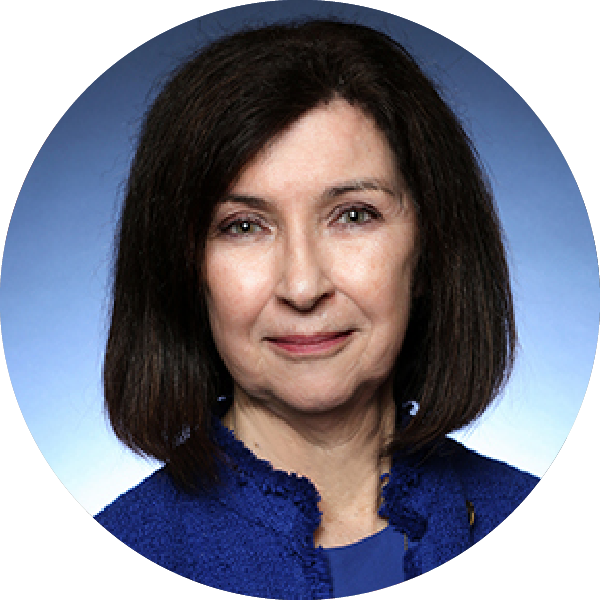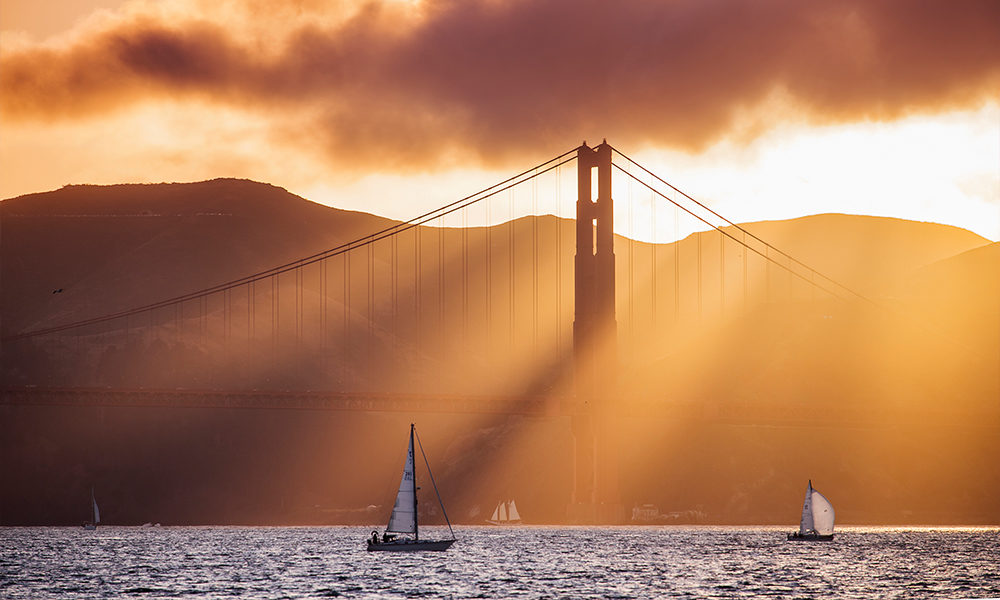Extraordinary Bay Hero VADM Breckenridge Protects U.S. Waters
She will be honored October 13 with a Courageous Woman Bay Hero Award
 Vice Admiral Jody A. Breckenridge enjoyed a broad view of the San Francisco Bay during her final tour with the U.S. Coast Guard. As Commander of the Pacific Area and Defense Forces West, she lived in the lighthouse keeper’s house on Yerba Buena Island.
Vice Admiral Jody A. Breckenridge enjoyed a broad view of the San Francisco Bay during her final tour with the U.S. Coast Guard. As Commander of the Pacific Area and Defense Forces West, she lived in the lighthouse keeper’s house on Yerba Buena Island.
“Living on that point of land gives you a very different perspective,” she said. Looking out at the San Francisco Bay, she saw maritime commerce, she saw ecosystems and she saw people who lived, worked and visited the Bay. And she knew that they all depended upon the health of those waters for their well-being.
In that command, Vice Adm. Breckenridge’s responsibilities stretched far beyond the San Francisco Bay. Beginning in 2009 until her 2010 retirement. The three-star flag officer oversaw Coast Guard operations across 73 million square miles of the Pacific Basin to the Far East, and she was the first woman to assume that far-reaching command.
By then she had spent more than three decades in the Coast Guard and had held numerous positions, each contributing to her deep understanding of the connection between people and the environment and each bolstering her commitment to safeguard both.
Vice Adm. Breckenridge’s interest in the environment began on the East Coast where she grew up one of nine children in a military family.
“I loved history and I loved science,” she said.
At Virginia Tech, she focused on research.
“I got a job working for the fresh water lab,” she said. The project involved studying the impact of fossil fuel plants on the ecosystem. She picked up a biology degree there and later earned two master’s degrees, one in public policy from the University of Maryland and the other from the Industrial College of the Armed Forces.
In 1976, she became a commissioned officer in the Coast Guard and landed in the National Response Center, which takes reports for oil spills, chemical releases and maritime security incidents. Then she joined the pollution response branch of the Marine Environmental Protection Division in Washington, D. C., where national and international maritime safety and pollution standards were taking shape.
Vice Adm. Breckenridge’s career also took her to the West Coast with assignments in Seattle and California. While she was Commander of the Eleventh Coast Guard District in Alameda, California, the Coast Guard men and women in her district “responded to more than 3,454 search and rescue cases, saving more than 648 lives, inspected 7,700 commercial vessels, and are credited with record-breaking drug busts in the Eastern Pacific Ocean with more than 282,130 pounds of cocaine seized,” according to Coast Guard News.
In 2006, during one drug case, her district worked with federal drug enforcement agents to capture a major Mexican drug cartel leader, Francisco Javier Arellano Félix. The mission was complicated. The cartel likely would try to rescue Félix, plus two children were on the Félix boat.
“We didn’t want to scare the kids, and we wanted to make sure we got them back to family members safely,” Vice Adm. Breckenridge said. “There was no policy for how to handle that, so we had to create that on the fly.”
Concern for children and future generations has always played a role in Vice Adm. Breckenridge’s professional and personal life. She and her veterinary husband, Paul, have four grown children and three grandchildren. One son is an active duty Army doctor; another son works in computer science; a daughter is a teacher; and another son is a Coast Guard helicopter pilot.
“I do think a lot about the world my grandkids are going to get,” she said.
When it comes to the environment, national leaders need to listen to this country’s young people.
“It’s something that really matters to them, and we ought to be respectful that what they are telling us is the kind of world they want passed onto them,” she said.
People need to stop arguing about what to call the weather changes the world is experiencing and start talking about the science, she said, adding that everyone needs to acknowledge the reality of what is happening and find solutions to mitigate long-term damage to natural resources.
“We are seeing some rollback in the environmental arena with the standards that go on in this nation for clean water and for other things, and those things were put in place for a reason,” she said.
Gains that have been made in air and water quality are at risk, she said.
“We need to be a partner internationally because what they do in other nations affects us,” she said, “I’m not seeing us as a player in any of that right now.”
For her part, Vice Adm. Breckenridge, continues to offer her expertise in the Bay and beyond as the Vice Chair of the San Francisco Fleet Week Association, the Vice Chair of the Governor’s Military Council and as a board member for several military and veteran organizations.
A resident of the East Bay, she is Chair of the Board of Directors for the San Francisco Water Emergency Transportation Authority, a public transportation service with a legislatively-mandated disaster response role.
For ferries and other vessels, she would like to see more innovation to move away from fossil fuels.
At the same time, she said individuals can do more to safeguard the environment.
She and her husband have installed solar panels on their home; they recycle and compost and have set a new goal to cut down on food waste.
“If every person would take a look at themselves and make some small changes to reduce their own imprint, that would go a long way,” she said.
People also can volunteer for environmental projects , she said, with great organizations like Save The Bay.

